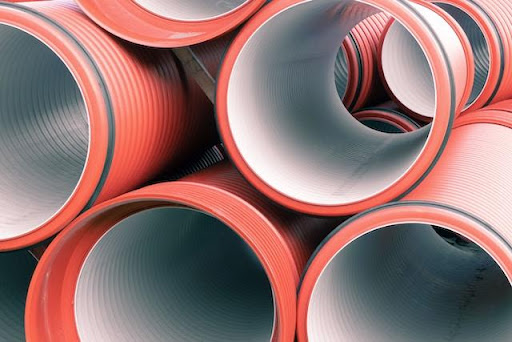
Sewer line clogs and blockages are common plumbing issues in homes. As Avalon Management experts warns, when a home’s main sewer line is clogged, it can lead to all sorts of problems. From slow drains to bad odors inside the home, and if the problem goes on long enough, the contents of the sewer can back up into the house.
But like other problems in your home’s plumbing system, there are reasons sewer clogs happen. Some of these are natural reasons that cannot be avoided but only mitigated. Others are artificial: the results of how the drains in your home are used.
Knowing the root causes of sewer line clogs can help you understand how to manage your drains to avoid this problem. You will see how your actions impact the function of your sewer line. You will also identify lifestyle changes you need to make to protect your plumbing.
Furthermore, you will save yourself some money and spare your family the horrible experience of living in a home where the sewer line is malfunctioning. A healthy and functioning main sewer line means peace of mind. This post can help you achieve that.
Why your main sewer line gets clogged
- FOG (fats, oil, and grease)
If you habitually dump used-up grease into the kitchen drain, you will have issues of chronic clogging in your main sewer line. Although grease is fluid when it enters your drain, it congeals into a hard mass when it cools down. This hard mass will line the inside of the pipes and trap debris until your main sewer line is clogged.

It is not a good idea to flush food waste into the kitchen sink; it can cause problems in your main sewer line.
- Food waste
It is not a good idea to flush food waste into the kitchen sink; it can cause problems in your main sewer line. For instance, rice and mashed potatoes are sticky. Once inside your drainpipes, they can swell to many times their actual size. Coffee grinds and eggshells act like sand inside the pipes and are hard to wash away.
- Non-biodegradable items
Many items we consider flushable and freely flush into the toilet will hurt your main sewer line by clogging the pipes. The only things that should go into the toilet are human waste and toilet paper. Avoid putting items like wipes, sanitary napkins, and diapers in the toilet.
- Hair and soap scum
Soap scum is a major issue in areas where the water is hard. Soap scum, on its own, is a challenge for your home’s sewer line. But when soap scum combined with hair has found its way into the sewer line, it can form a hard ball that will clog the sewer line.
- Tree roots
There are two ways that nearby tree roots can interfere with the operation of your main sewer line. They can grow over or under the pipe, causing it to move. That will create dips in the sewer line, making it hard for water and debris to pass through. Tree roots can also pierce the sewer line and block it.
- Corrosion
This problem is commoner with sewer lines made of metal or clay pipes. PVC pipes are less vulnerable to corrosion. Corrosion can happen in a sewer line as a result of accumulated debris. A corroding sewer line will crack and leak easily, leading to soil piling up inside the line and blocking it.
- Soil shifts
Soil movements around the area where your underground sewer lines are laid can move the pipes out of place. Changes in the surrounding soil can cause pipes to lose their support and sag. A sagging pipe will be more likely to collect debris because the water passing through it will be slowed down.
- Aging pipes
Sewer pipes will eventually need to be replaced at some point. If the time reaches for this replacement and it is not done, the sewer line will become progressively unstable. Due to the weakness of their materials, aging pipes are more likely to crack, leak and clog. If the pipes are old you should consider a full sewer line replacement.

Chemical drain cleaners can cause chronic clogging in your main sewer line.
- Chemical drain cleaners
Chemical drain cleaners can cause chronic clogging in your main sewer line. Ironically, this is the actual problem chemical drain cleaners are supposed to solve. But chemical drain cleaners contain potent corrosives that attack both the clogs and the pipes themselves, weakening your sewer line in the process.
- Poor installation
If a sewer line is not properly installed, it will be vulnerable to clogs. For instance, if the proper slope is not maintained throughout the line or there are bumps, rough edges, and jutting areas within the pipes, the sewer line will suffer from clogs and blockages.
What can you do to prevent these issues and protect your main sewer line from clogs? Simple lifestyle changes will help you avoid most sewer line issues. Annual sewer camera inspections performed by a professional plumber, are also essential for keeping the sewer line functional at all times, throughout the year.